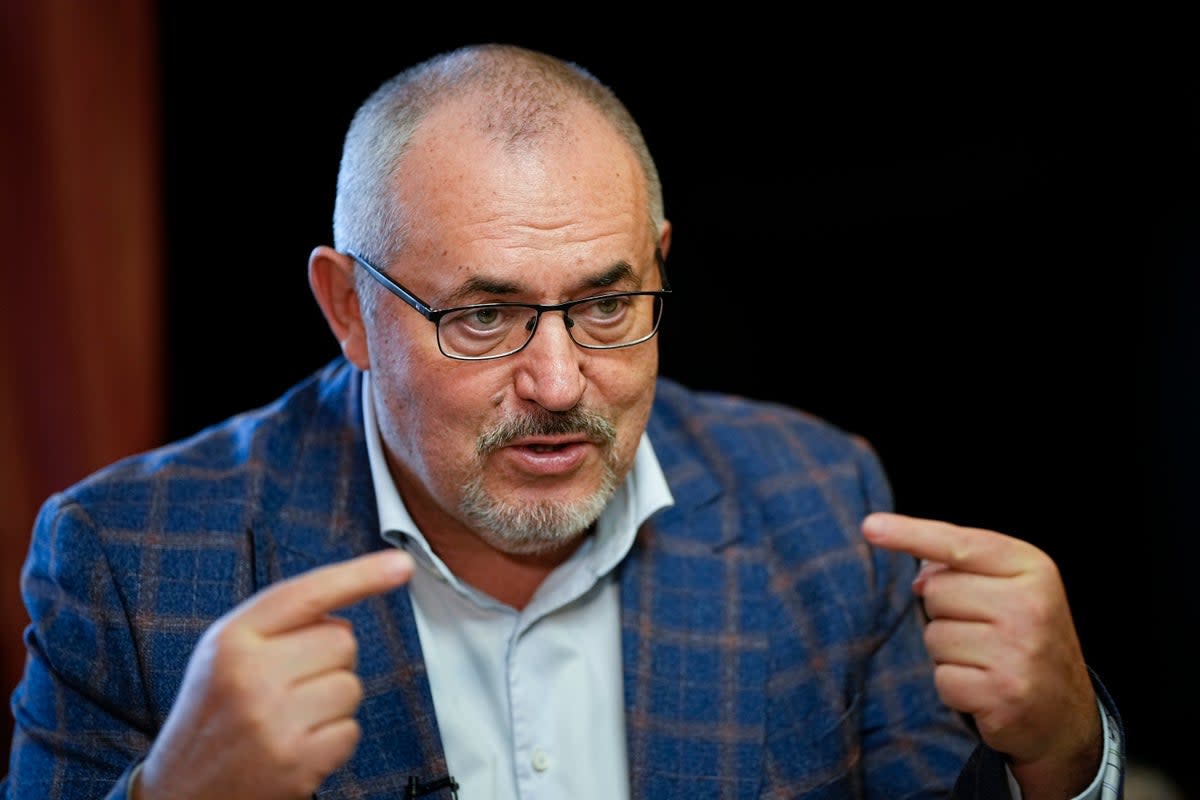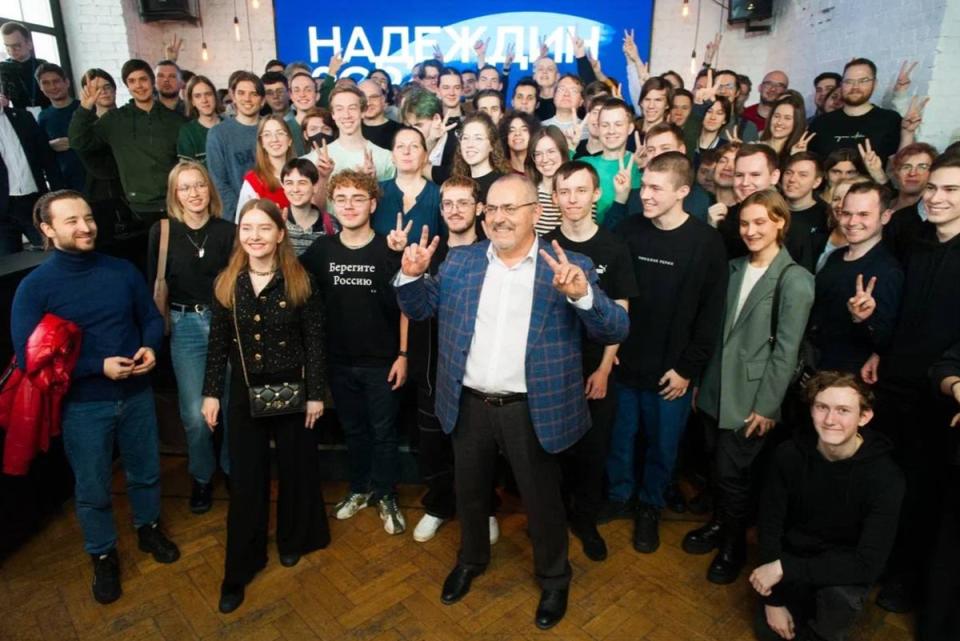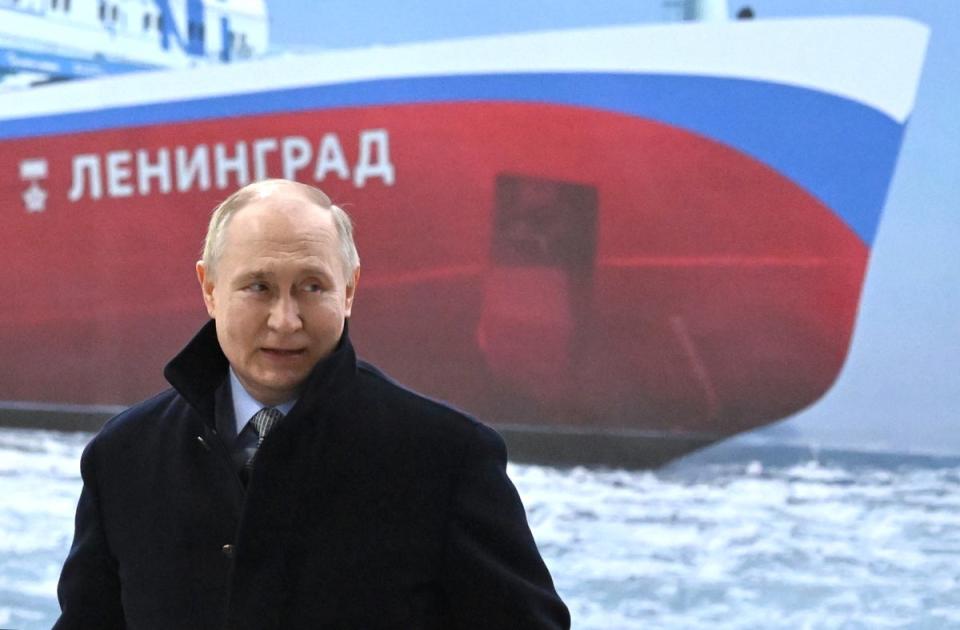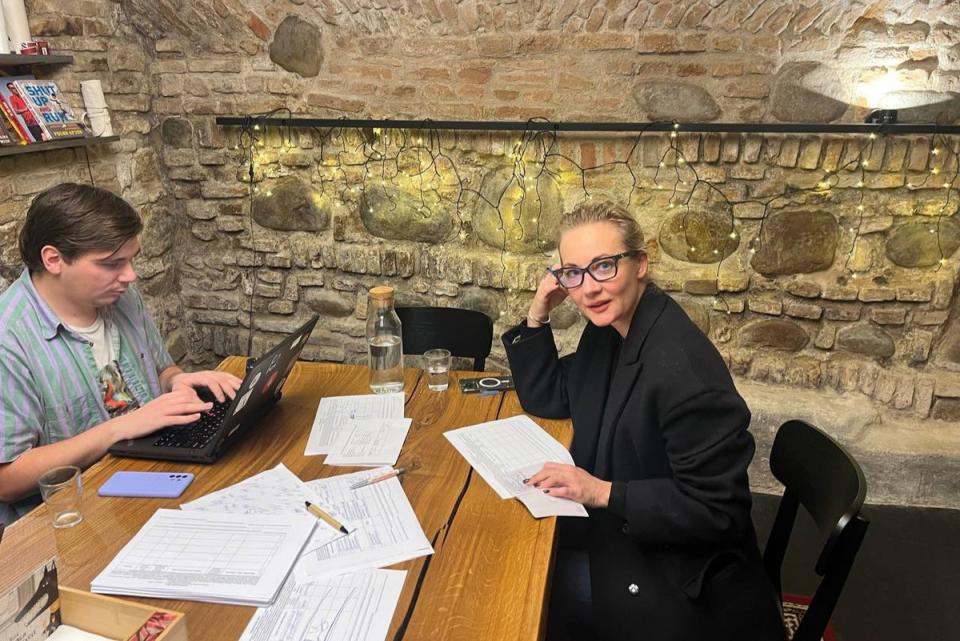Who is Boris Nadezhdin? The Russian presidential challenger banned from running against Putin

A bespectacled 60-year-old who freely admits he lacks charisma or heroism but has been critical of Vladimir Putin’s invasion of Ukraine, has been banned from running against the president in next month’s election.
Boris Nadezhdin, whose surname stems from the Russian word for hope, is a local legislator and former bureaucrat turned academic. He had been endorsed by the wife of jailed Russian opposition figure Alexei Navalny, exiled oligarch Mikhail Khodorkovsky and Yekatarina Duntsova, a former regional lawmaker who looked to be the main anti-war candidate before the Kremlin struck off her application due to alleged technical errors in her paperwork.
“My aim is to change Russia,” he told the BBC in a recent interview. “My first task will be to stop the conflict with Ukraine, and then to restore normal relations between Russia and the western community,” he added, acknowledging there was little chance of making it into office,.

The unlikely candidate has struck a chord with the public, openly calling for a halt to the conflict in Ukraine, the end of mobilizing Russian men for the military, and starting a dialogue with the West. He also has criticised the country’s repression of LGBTQ+ activism.
Mr Nadezhdin is running as a candidate for the Civic Initiative Party, a party that is not represented in parliament.
As a result, his team had to collect more than 100,000 signatures for him to be allowed to stand. He cannot have more than 2,500 from each of the dozens of the vast country’s regions, precluding him from accruing votes just from the larger, more progressive cities.
Mr Nadezhdin said he would appeal to the Supreme Court after the Central Election Commission (CEC) barred him from the March election . The CEC had previously claimed that it had found flaws in signatures that Mr Nadezhdin and his allies had collected in support of his candidacy and that some of the purported signatures were those of dead people.
The CEC claimed it had found “irregularities” in more than 9,000 of the signatures. That figure was three times higher than the fiver per cent error rate allowed and provides grounds for the commission to disqualify Mr Nadezhdin.

Online videos had shown queues of Nadezhdin supporters not just in Moscow and St. Petersburg but also in Krasnodar in the south, Saratov and Voronezh in the southwest and beyond the Ural Mountains in Yekaterinburg.
Even in the Far East city of Yakutsk, 280 miles south of the Arctic Circle, Nadezhdin’s team said up to 400 people a day braved temperatures that plunged to minus 40 Celsius to sign petitions.
Some analysts say the surge of support for Nadezhdin surprised even the Kremlin, although Putin spokesman Dmitry Peskov had previously said that “we don’t see him as a rival”.
Others say he is a Kremlin project designed to give false legitimacy to the upcoming presidential election. If he was a genuine threat, they say, the Kremlin would have arrested him.
They point to his work in the 1990s as an aide to Sergei Kiriyenko, a prime minister under Boris Yeltsin who is now Putin’s chief of staff, as suspicious - though Mr Nadezhdin was also an associate of Boris Nemstov, a longtime critic of Mr Putin who was murdered in 2015.
In a recent interview with CNN, Mr Nadezhdin said he “doesn’t know why I’m not arrested”.

The Kremlin wasted no time using the courts to silence Mr Putin’s opposition following the announcement in December last year of the next presidential election, set for 17 March.
Three days after Putin announced his intention to run, his jailed rival Mr Navalny was declared missing.
He would not be found for another three weeks, having been moved to a penal colony in the Arctic Circle, roughly 1,200 miles northeast of Moscow. He has been in jail since 2021.
Igor Girkin, a pro-war ultranationalist who had declared his intention to challenge Putin for the presidency, had his pretrial detention extended the day the election was announced.
He has since been sentenced to four years in a penal colony on charges of extremism after he urged Putin to pass power “to someone truly capable and responsible” of running the war in Ukraine.

 Yahoo News
Yahoo News 
